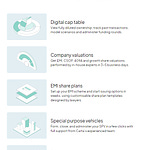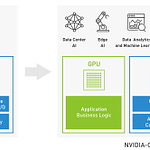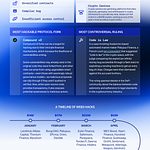Hi Fintech Futurists,
Welcome back to our podcast series! For those that want to subscribe in your app of choice, you can now find us at Apple, Spotify, or on RSS.
In this conversation, we talk with Will Beeson of Bella and Rebank, about how the Internet/Reddit/Gamestop broke our financial markets, the social contract, and what the new American finance structure will look like.
More specifically, we give some thought to which FinTech and Crypto companies win or lose from the GameStop adventure, the actual market structure issues that led to the suspension of Robinhood’s trading, and what’s next for the mobile broker, and finally, the social meaning of the war against hedge funds by Reddit’s r/wallstreetbets. Check out our conversation on these exciting new developments.
For premium subscribers, a full transcript is provided along with the recording.
Hope you enjoy, and do not hesitate to reach out here!
Excerpt
Lex Sokolin:
One of those market makers is Citadel Securities, Virtu Financial is another company, and if you talk about high-frequency trading shops and things of that nature, they're basically on top of exchanges taking orders and the way they make money as they take spreads. So they take a tiny spread on everybody's transaction.
Now, if you're in that business, you're not taking a long or short position, you just want to execute the trades and you might pay 10% of your P&L to purchase order flow because you get to keep some of the spread. You can have sort of more cynical reads. I don't agree with all of the cynical reads, but you could say they're buying order flow in order to front run it, which is a conspiracy. Or you can say, which I do believe, they're buying order flow so that they can hide larger trades in there. They can put block trades, a $50 million trade of Apple, without impacting the stock market, you can basically place into a giant stream of retail payments.
So for a market maker, paying Robinhood to be the lead gen makes a lot of sense. Again, you can be cynical with it, you can be conspiratorial with it, it's just today's market structure. So that's where all of Robinhood's economics essentially come from.
Will Beeson:
I think given the history, right, like dating back to 2008 and way way before that, the onus is, in a sense, on the financial industry, and these larger players, specifically, to kind of engender confidence that what they're doing does make sense for everyone and it's not self-serving and it's not purely kind of self-interested and profit motivated in ways that are manipulative. I don't tend to be the kind of frontline revolutionary in a lot of this stuff, but I absolutely understand the frustration of the retail investors. I think, maybe, we get back into it by picking up the story and how things evolved.
For the annotated transcript and additional premium analysis, subscribe here:












